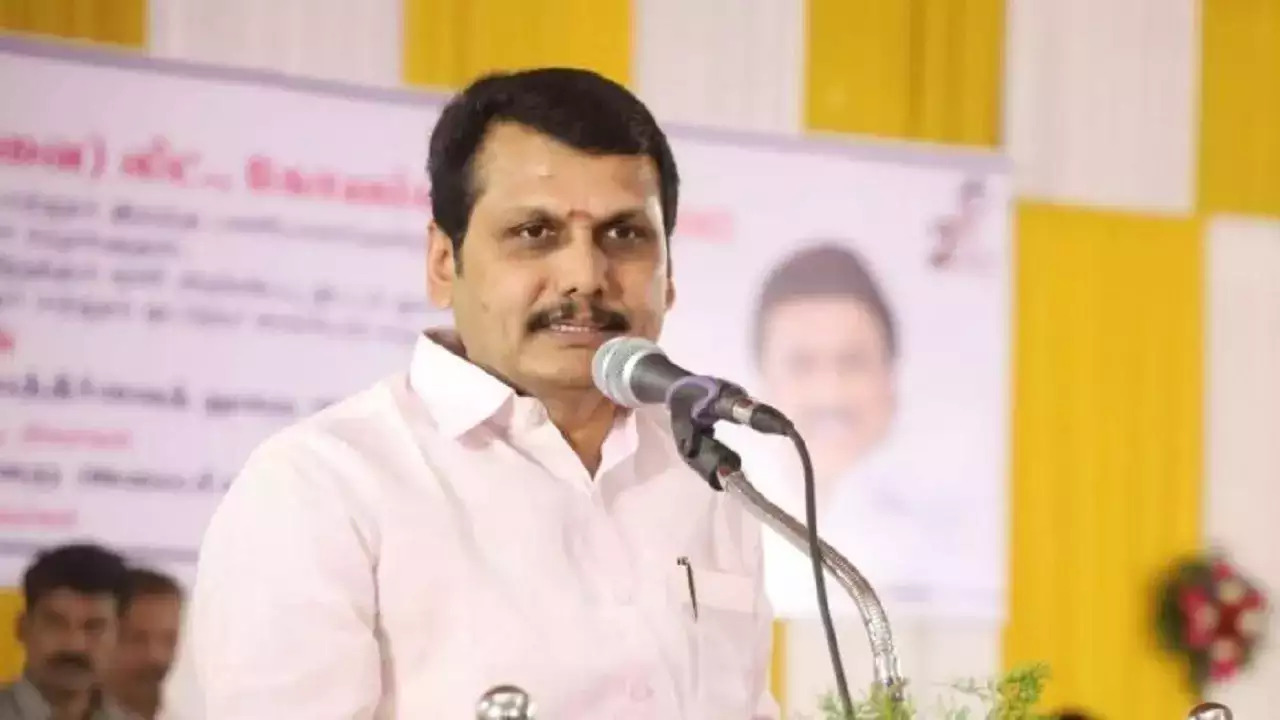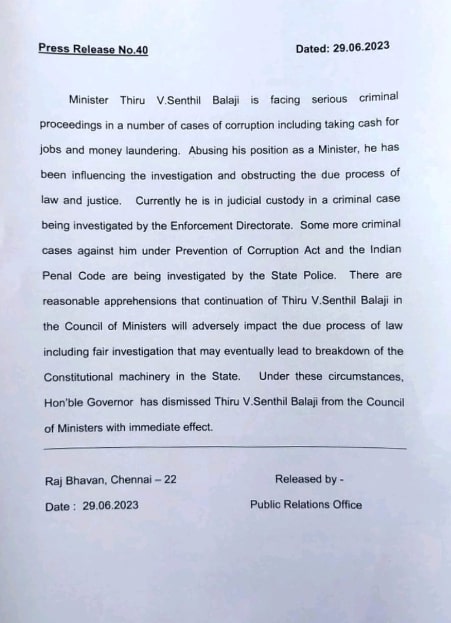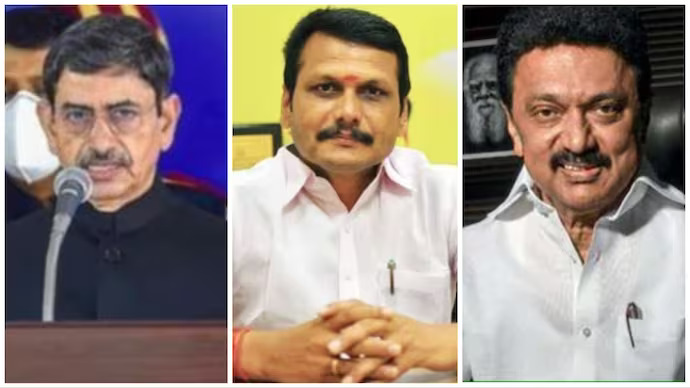Governor R.N. Ravi of Tamil Nadu abruptly removed Council Minister V. Senthil Balaji on June 29, intensifying hostilities between the governor and the state’s DMK-led administration.
In response to the governor’s action, Chief Minister Stalin stated that the government will appeal the decision in the Supreme Court and that the governor lacked the authority to remove a minister from the Cabinet.

According to sources, the Raj Bhavan informed the Chief Minister’s Office late on June 29 that the firing was “on hold” seeking legal counsel. Raj Bhavan has not yet publicly confirmed this.
Balaji, who was detained in connection with a cash-for-jobs scandal on June 14 and is currently facing criminal charges, was kept on as a minister without portfolio by the chief minister, but Governor Ravi decided to override it unilaterally.
Senthil Balaji underwent a heart bypass surgery and is currently being held in judicial custody in a private hospital.
Unnamed sources were cited by PTI as saying that Raj Bhavan would meet with the Attorney General and that the order would be suspended until further communication.
Balaji is currently subject to serious criminal prosecution in several incidents of corruption, including accepting payment in cash for work and money laundering, according to a previous official statement from Raj Bhavan. He has been interfering with the investigation and impeding the fair administration of justice by taking advantage of his powers as minister.

There are legitimate concerns that keeping V. Senthil Balaji on the Council of Ministers will negatively affect the legal system, including fair investigations, and may finally cause the State’s constitutional machinery to break down, the release said, according to PTI.
Senthil Balaji has been expelled from the Council of Ministers by the governor with immediate effect as a result of these circumstances, it continued.
The order was issued notwithstanding Chief Minister M.K. Stalin’s June 17 decision to keep Senthil, a minister with no portfolio. Stalin lashed out at the governor’s actions and mentioned that the governor held no power to remove a minister.
The Enforcement Directorate charged Balaji with a money laundering case on 14th June and since the day of his detention, Senthil has been under judicial detention.
In India’s history, this is one of the rare cases where the government has removed the minister from the assembly without the Chief Minister’s nod.
In a letter to the chief minister of Kerala last October, another governor also appointed by the BJP administration, Arif Mohammad Khan, stated that the state’s finance minister, K.N. Balagopal, had lost the “pleasure” of his office as a result of some statements he had made in public.
By that point, the governor had publicly threatened to fire state ministers who spoke out against him.
The Constitution Bench ruled that the Governor may only employ those powers at his discretion that are expressly granted to him by or according to the Constitution under Article 163(1). In this instance, the bench concluded that the governor can only convene, prorogue, and dissolve the house with the assistance and counsel of the council of ministers, which is led by the chief minister. not at his leisure.
The explanation is that by leaving out sub-article (3), the constitution’s drafters changed their initial intent and purposefully decided not to provide the governor power over calling a special session or dissolving a house of the state legislature.
It makes sense to inquire about the propriety of such a governor’s exercise of discretion in the case of Ravi’s dismissal of Balaji as a minister because the constitution does not specifically mention the governor’s discretionary power to remove ministers from office without the support and counsel of the council of ministers.












